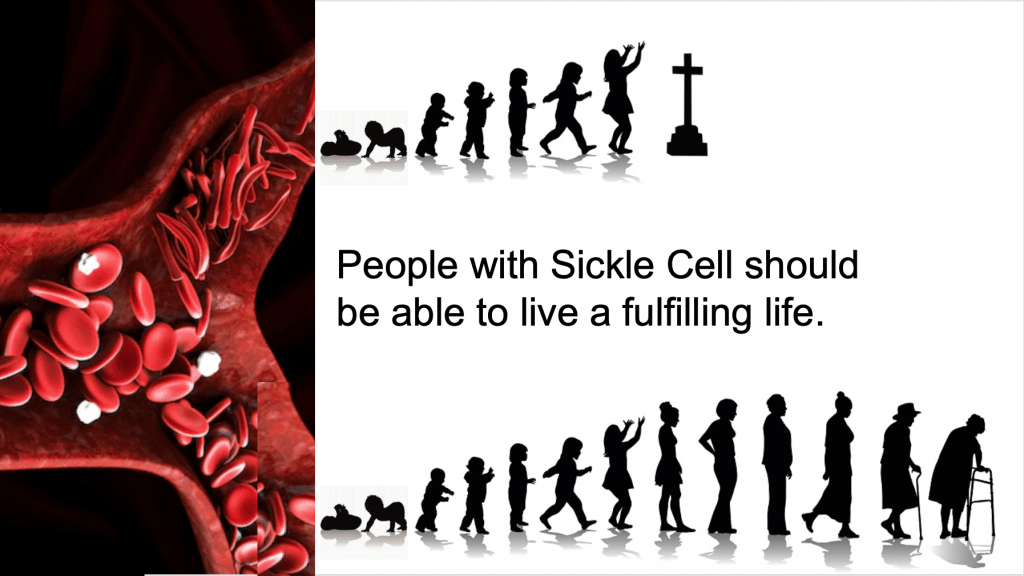The goal for the sickle cell team focuses on the idea that all individuals with sickle cell disease should be able to live a fulfilling life. This cover slide demonstrates how sickle cell (a genetic condition where blood cells become sticky and sickle-shaped, causing blood clots), results in reduced life expectancy (among other symptoms); however, our dream is that these individuals should be able to live fulfilling lives, similar to those of individuals with normal blood (symbolized by the difference between the top and bottom graphics).
The conceptual framework highlighting the problem points out three underlying, systemic problems preventing individuals in Sierra Leone with sickle cell from living fulfilling lives. These underlying, healthcare system challenges are
1. Low education on prevalence, causes, symptoms, and management.
2. Limited access to treatments (including financially).
3. No screening programs, and diagnostic capabilities limited to small, isolated programs.
These underlying problems together result in unfulfilling lives for individuals with sickle cell. Specifically, in Sierra Leone, 50-90% of individuals with sickle cell will die before the age of 5, and most of these children are never even diagnosed. In the rare event that a child lives long enough to be present with clinical symptoms, low education, a lack of diagnostic capabilities, and limited access to treatments means that the individual often remains undiagnosed, and even if sickle cell is suspected, they receive no to little guidance on how to handle symptoms or have access to proven, cheap treatments. The only exception to this, is in Freetown and Kono, where individuals at the hospitals who present with clinical symptoms can be referred to programs for official diagnosis, and can receive subsidized treatments and education. Despite this, these programs are limited to a few hundred individuals in these two cities, and do not address the huge proportion of children who die before they present with clinical symptoms, or those who are never referred due to a lack of education. Because of this, the majority of children experience an increased risk for infection, frequent pain crisis, and stigma.
Our solution focuses on a systemic change. By implementing a newborn screening program, individuals with sickle cell can be identified before they present with symptoms, and can start treatments early when they are most effective. Our solution will also incorporate a life-long treatment and education program which will allow the individuals to manage their symptoms, and live fulfilling lives. By collaborating with other sickle cell ventures in Sierra Leone, this solution can be implemented at a national level.



